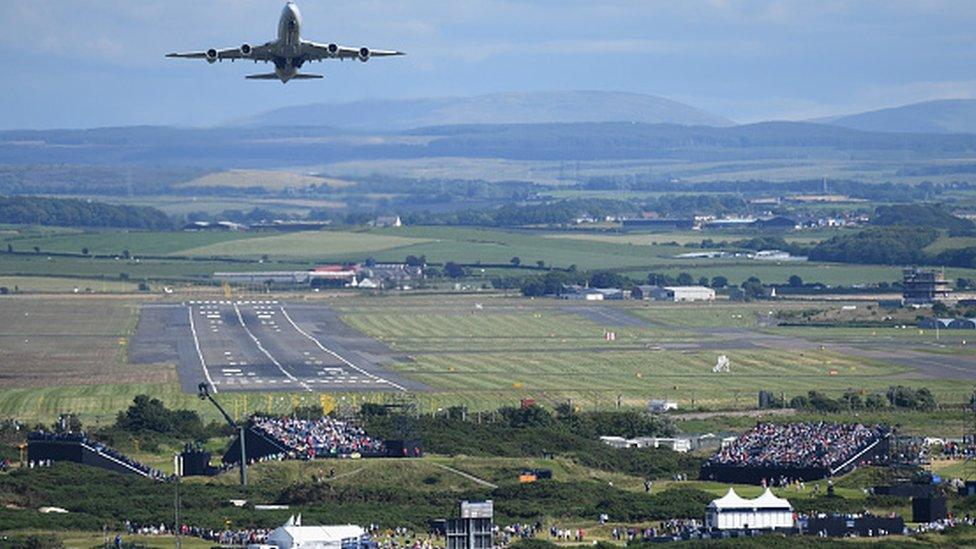A palpable injustice can transcend politics
- Published
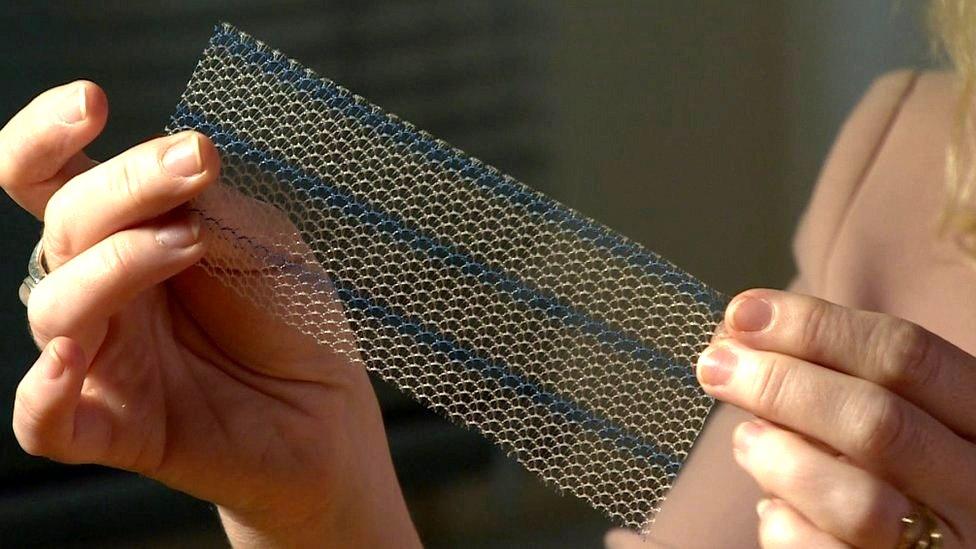
The mesh implants are used to ease incontinence and to support organs
Sometimes, politics can seem like a matter of rote - the mechanical or ritual repetition of formulae. He said. She retorted.
But, just sometimes, a palpable injustice can transcend politics, engendering authentic emotion.
Such was the case at Holyrood today. The topic was the highly emotive scandal of surgical mesh implants.
The exchanges were solemn, grave and focused - and mercifully free, for the most part, of political game-playing.
But there was more. Hovering over the chamber was a spectre representing individual women in pain. Chronic, agonising pain.
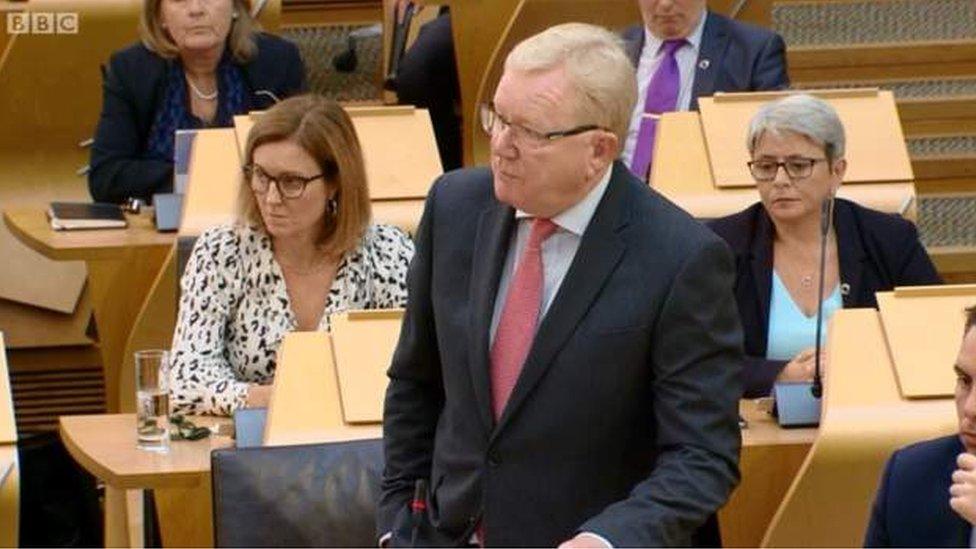
Jackson Carlaw was pursuing the question of a US surgeon who offers full mesh removal
Jackson Carlaw of the Conservatives, has pursued this topic persistently. Today, he moved from the general to the particular, raising the case of a constituent.
It was too much for the Tory leader. His voice audibly strained, he struggled to complete his questions to the first minister.
You could see him straining to regain composure, determined to take his chance to press his points upon the FM.
'Professional conspiracy'
Nicola Sturgeon responded with sympathy, substance and solidarity. She thanked Mr Carlaw sincerely for his non-partisan approach.
The Tory leader was arguing, in general terms, for justice. But, more particularly, he was pursuing the question of a US surgeon who offers full mesh removal.
It had been thought that the surgeon, Dionysios Veronikis, might be enabled to come to Scotland to assist sufferers here.
However, he needs agreement from the General Medical Council and, thus far, the necessary arrangements, including a visit to the US by Scottish clinicians, have been delayed.
Mr Carlaw suggested this was due in part to a "professional conspiracy" among elements of the medical profession in Scotland.
That point was amplified by Labour's Richard Leonard. Ms Sturgeon assured both that she was keen that the US surgeon should be able to come to Scotland.
She explained the practical obstacles, adding that she had no evidence of obstruction by the NHS in Scotland. She urged the other leaders to supply any evidence they had.
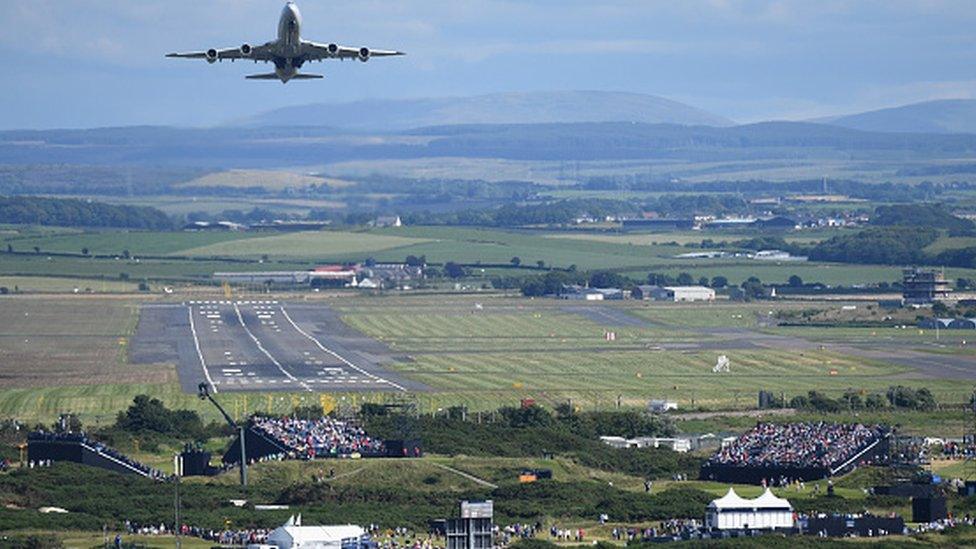
Patrick Harvie asked about reports suggesting that discounted refuelling had been made available at Prestwick Airport for US military flights
To the other parties. Patrick Harvie of the Greens seized upon reports suggesting that discounted refuelling had been made available at Prestwick Airport for US military flights.
Rather effectively, he said this turned the currently nationalised airport into a "cut-price petrol station" for the US, with taxi trips available to the nearby Trump Turnberry Hotel.
Ms Sturgeon's reply was cautious. Yes, her government had taken Prestwick into public ownership, with the aim of helping it revive and ultimately returning it to the private sector.
But the day-to-day running of the airport - its commercial operation - was at arm's length from ministers. That was necessary to comply with state aid regulations.
'Patients are at risk'
For the Liberal Democrats, Alex Cole-Hamilton raised the failure to meet NHS waiting times. His combative approach, suffused with statistics, was potent.
Ms Sturgeon said the NHS performance in Scotland was better than elsewhere in these islands. Mr C-H was less than impressed (he was standing in, as Ms Sturgeon noted en passant, for Willie Rennie, who is apparently on holiday).
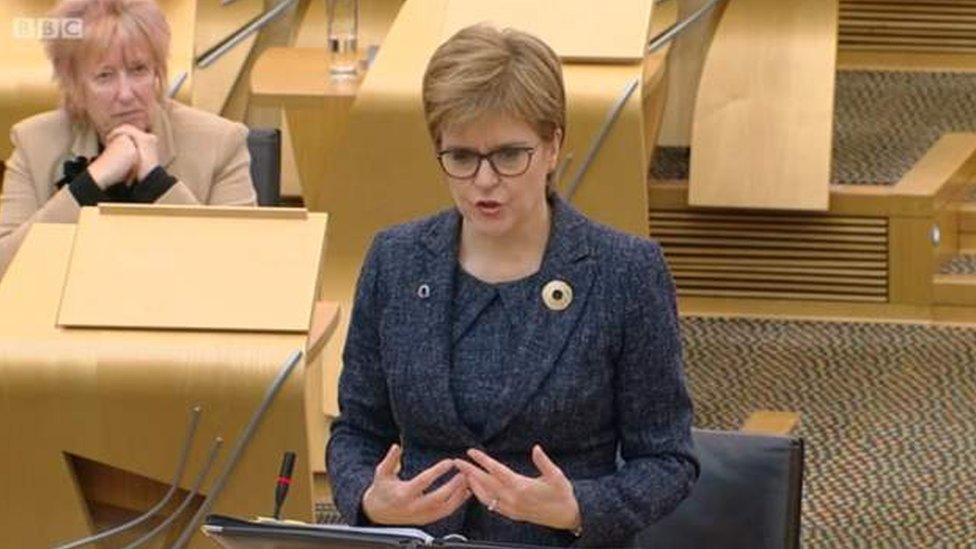
Then, to Brexit. Clare Adamson of the SNP cited the interview given to the Today programme by Dr Sally Davies, the chief medical officer for England.
Questioned about a no-deal Brexit, Dr Davies said she could give no guarantees re the availability of pharmaceutical drugs. She added that there might be consequent deaths. That patients are at risk.
Ms Sturgeon rose to the challenge. With evident exasperation, she questioned whether people had to die before the UK government would change course and rule out no-deal.
It was a serious contribution to a decidedly serious topic.
But, somehow, the atmosphere in the chamber was still redolent of those earlier exchanges, about mesh implants.
That hovering spectre still exuded a whimper of evident pain. Persistent, unendurable pain.
These were valid, vital exchanges. Serious discourse, substantively pursued. Somehow, though, the hovering spectre seemed unimpressed.
- Published10 October 2019
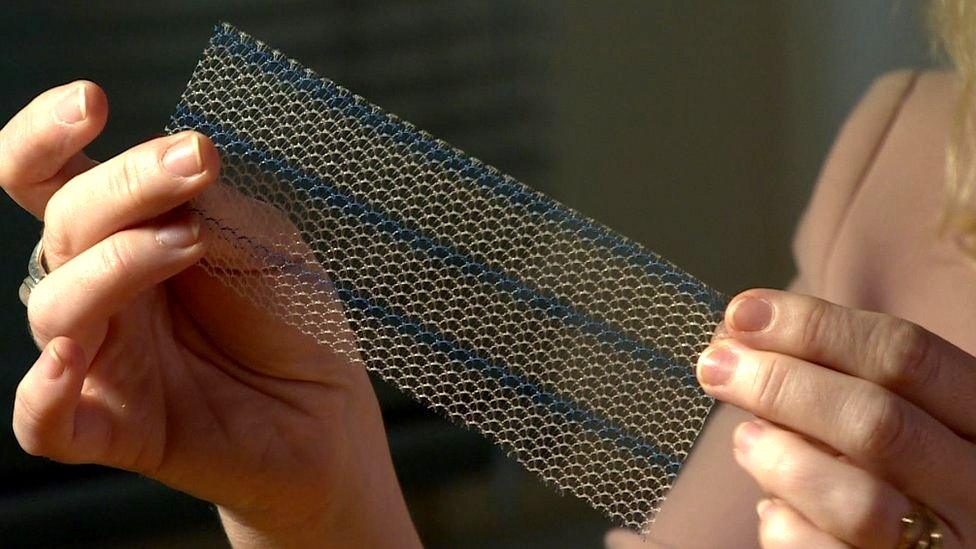
- Published8 October 2019

- Published6 October 2019
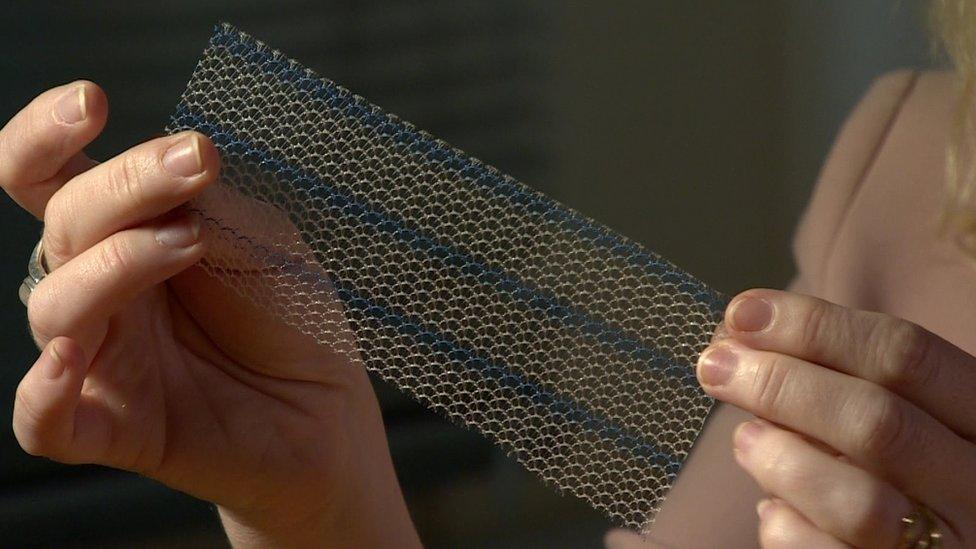
- Published13 June 2019
